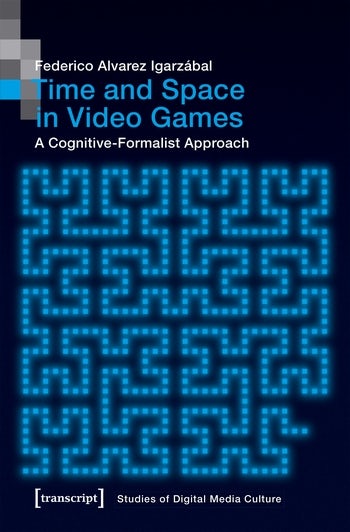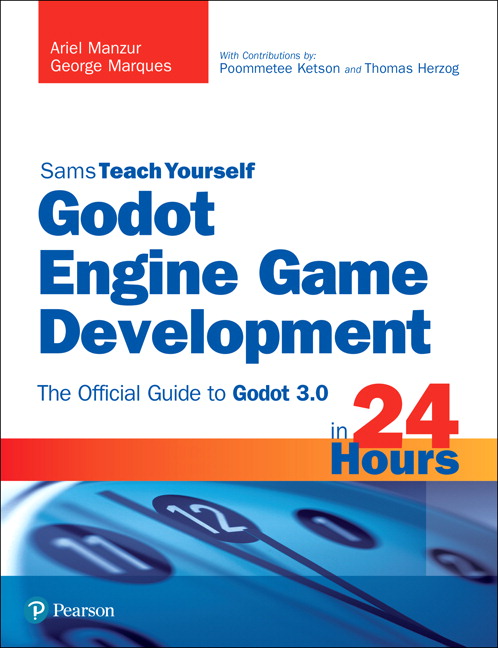Tag: book gamedesign
Estudos sobre gamedesign e assuntos relacionados!
A Carnegie Mellon University, mais concretamente o Carnegie Mellon University – Entertainment Technology Center, nos estados unidos tem uma série de documentos LIVRES acerca do design de videojogos. Nesta altura os títulos que encontrei foram:
Beyond Fun de Drew Davidson
Analog Game Studies, volume one, de Emma Leigh Waldron, Evan Torner, Aaron Trammell
Analog Game Studies, volume three, de Emma Leigh Waldron, Aaron Trammell, Evan Torner
Analog Game Studies, volume two, de Aaron Trammell, Emma Leigh Waldron, Evan Torner
Game Design Research de Petri Lankoski, Jussi Holopainen
Game Design Snacks de José P. Zagal
Game Jam Guide de Sara Cornish, Matthew Farber, Alex Fleming, Kevin Miklasz
Game Mods de Erik Champion
Game Research Methods de Petri Lankoski, Staffan Björk
Learning, Education and Games (Vol. 1) de Karen Schrier
Learning, Education and Games (Vol. 2) de Karen Schrier
Ludoliteracy de José P. Zagal
Missions for Thoughtful Gamers de Andrew Cutting
Mobile Media Learning de Seann Dikkers, John Martin, Bob Coulter
Mobile Media Learning de Christopher Holden, Seann Dikkers, John Martin, Breanne Litts
Possible Worlds in Video Games de Antonio José Planells de la Maza
Real Time Research de Seann Dikkers, Eric Zimmerman, Kurt Squire, Constance Steinkuehler
Tabletop de Greg Costikyan, Drew Davidson
The Game Beat de Kyle Orland
Transmedia Storytelling de Max Giovagnoli
Well Played 1.0 de Drew Davidson
Well Played 2.0 de Drew Davidson
Well Played 3.0 de Drew Davidson
+infos(oficial): http://press.etc.cmu.edu/
Handmade pixels: independent video games and the quest for authenticity
:) hoje é dia para divulgar por aqui livros, mais um: “Handmade pixels: independent video games and the quest for authenticity” de Jesper Juul
Acerca do livro:
“An investigation of independent video games—creative, personal, strange, and experimental—and their claims to handcrafted authenticity in a purely digital medium.
Video games are often dismissed as mere entertainment products created by faceless corporations. The last twenty years, however, have seen the rise of independent, or “indie,” video games: a wave of small, cheaply developed, experimental, and personal video games that react against mainstream video game development and culture. In Handmade Pixels, Jesper Juul examine the paradoxical claims of developers, players, and festivals that portray independent games as unique and hand-crafted objects in a globally distributed digital medium.
Juul explains that independent video games are presented not as mass market products, but as cultural works created by people, and are promoted as authentic alternatives to mainstream games. Writing as a game player, scholar, developer, and educator, Juul tells the story of how independent games—creative, personal, strange, and experimental—became a historical movement that borrowed the term “independent” from film and music while finding its own kind of independence.
Juul describes how the visual style of independent games signals their authenticity—often by referring to older video games or analog visual styles. He shows how developers use strategies for creating games with financial, aesthetic, and cultural independence; discusses the aesthetic innovations of “walking simulator” games; and explains the controversies over what is and what isn’t a game. Juul offers examples from independent games ranging from Dys4ia to Firewatch; the text is richly illustrated with many color images.”
Os conteúdos são:
Introduction
High-Tech Low-Tech Authenticity: The Creation of Independent Style at the Independent Games Festival
A selective History of Independen Games
How to Make and Independent Games
The Aesthetics of the Aesthetics of the Aesthetics of Video Games
Whoe Cares If It’s a Game?
Conclusions: Independent Evermore
+infos(oficial): LINK
Time and Space in Video Games: A Cognitive-Formalist Approach
Outro livro que gostava de ter acesso: Time and Space in Video Games: A Cognitive-Formalist Approach (Studies of Digital Media Culture, Bd. 9) de Federico Alvarez Igarzábal
“Video games are temporal artifacts: They change with time as players interact with them in accordance with rules. In this study, Federico Alvarez Igarzábal investigates the formal aspects of video games that determine how these changes are produced and sequenced. Theories of time perception drawn from the cognitive sciences lay the groundwork for an in-depth analysis of these features, making for a comprehensive account of time in this novel medium. The first book-length study exclusively dedicated to the topic, it is an indispensable resource for game scholars and game developers alike, while its reader-friendly style makes it readily accessible to the interested layperson.”
os conteúdos são:
Brain time in virtual space
“the state machine and the present moment”
“structuring gametime”
“cause, effect, and player-centric time
Interation in virtual space
“predictive thinking in virtual worlds”
“the goundhog day effect”
“the hybrid narrator”
Through the temporal landscape
“the speed of time”
“marshmallows and bullets”
“Chekhov’s BFG”
Conclusion
+infos(oficial): LINK
+infos(google books): LINK
Godot Engine Game Development in 24 Hours, Sams Teach Yourself: The Official Guide to Godot 3.0
Aqui está um livro daqueles que gostava de testar: “Godot Engine Game Development in 24 Hours, Sams Teach Yourself: The Official Guide to Godot 3.0” dos autores Ariel Manzur e George Marques
Do programa do livro e em 24h faz parte:
Hour 1. Introducing the Godot Engine
Hour 2. Scene System
Hour 3. 2D Graphics
Hour 4. Scripting
Hour 5. Game 1: Space Shooter
Hour 6. More Scripting
Hour 7. Handling Input
Hour 8. Physics System
Hour 9. User Interface
Hour 10. Animation
Hour 11. Game Flow
Hour 12. File System
Hour 13. 3D Graphics
Hour 14. Project Management
Hour 15. Materials and Shaders
Hour 16. Lights and Shadows
Hour 17. Game 2: Bloxorz Clone
Hour 18. Environments
Hour 19. Sound
Hour 20. Particle System
Hour 21. Viewports and Canvas
Hour 22. Networking
Hour 23. Game 3: Networked Bomberman Clone
Hour 24. Exporting the Project
Hour 25. Native Code
+infos(oficial): LINK


